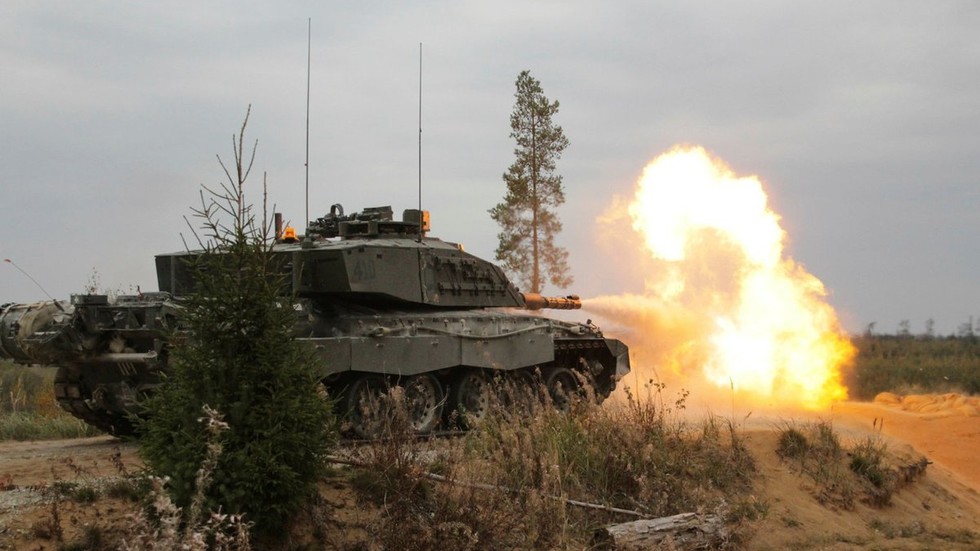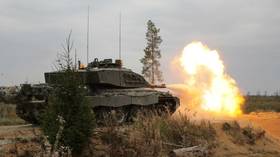
Moscow will treat the munitions as weapons with a “nuclear component,” the Russian president has said

FILE PHOTO. A Challenger 2 main battle tank. © Global Look Press / UK Ministry of Defence
Russian President Vladimir Putin has warned London against the planned delivery of depleted uranium (DU) armor-piercing tank rounds to Ukraine, saying the weapons will be treated by Moscow as containing “nuclear components.”
Putin commented on British plans to include DU munitions in a forthcoming delivery of Challenger 2 main battle tanks as he spoke alongside Chinese President Xi Jinping following talks in Moscow on Tuesday.
“I would like to note that if this happens, then Russia will be forced to react accordingly, bearing in mind that the collective West has already started to use weapons with a nuclear component,” he stated.
A similar warning was issued by Russian Defense Minister Sergey Shoigu on the sidelines of the Russia-China talks, who said the move would bring the world yet another step closer to a nuclear disaster.
“Another step has been taken, and there are fewer and fewer left,” Shoigu told reporters.
The looming delivery was announced on Monday by Annabel Goldie, the UK minister of state at the Ministry of Defence, as she responded to a written inquiry on the matter. She confirmed the plans to deliver DU rounds to Kiev, lauding them as a highly effective weapon.
“Alongside our granting of a squadron of Challenger 2 main battle tanks to Ukraine, we will be providing ammunition including armor-piercing rounds which contain depleted uranium. Such rounds are highly effective in defeating modern tanks and armored vehicles,” Goldie said.

The DU munitions have long been the subject of international controversy, with critics of their use highlighting the toxicity and radioactivity of the material. Depleted uranium is used to make the hardened cores of armor-piercing rounds, excelling in this role due its high density. The round’s core evaporates on impact, turning into aerosol and contaminating the environment with uranium.
The UN has already expressed alarm over the UK plans. Farhan Haq, a spokesman for Secretary-General Antonio Guterres, told a media briefing that the international body had long voiced concerns about the consequences of DU use, as well as about those who supply such weaponry.
These munitions were actively used by NATO during the First Gulf War, as well as during the bloc’s aggression against former Yugoslavia, both in the form of tank and aircraft artillery shells. The use of the munitions was acknowledged by NATO in a 2000 report, with the US-led bloc revealing that it had used some 10 metric tons of the material in Yugoslavia – and 300 metric tons in Iraq.
The report acknowledged that the material poses a threat due to its toxicity in an “aerosol form,” but insisted the DU was not “particularly highly radioactive.”




